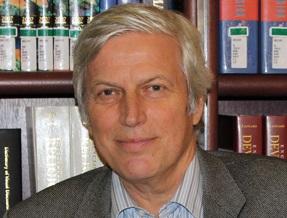"A nuclear deal with Iran: A farewell to arms control?"

Amb. (Ret'd) Paul Meyer - Senior Fellow, The Simons Foundation
Commentary by Amb. (Ret'd) Paul Meyer
Senior Fellow, The Simons Foundation
Published by Canadian International Council's OPENCANADA.ORG, Canada's Hub for International Affairs
March 5, 2015
Netanyahu thinks the deal would pave Iran's path to the bomb. But negotiations are the only way to avoid nuclear trip wires.
Israeli Prime Minister Benjamin Netanyahu certainly pulled out all the rhetorical stops in his unprecedented speech on March 3 to a joint session of the U.S. Congress.
He worked in themes as diverse as Biblical references and the basics of uranium enrichment technology. He also artfully re-phrased the title of a celebrated Hemingway novel to suggest that a deal with Iran would not represent “a farewell to arms” but rather “a farewell to arms control.” This elicited warm applause from the mainly Republican members, although as a group they are not exactly noted for their embrace of arms control in international affairs.
In Netanyahu’s view, the deal being discussed by Iran with the U.S. and other members of the so-called P5+1(Germany) group of states “doesn’t block Iran’s path to the bomb; it paves Iran’s path to the bomb” and thus should be rejected. However, as many, including President Obama, have observed, the Israeli Prime Minister didn’t offer up an alternative to the diplomatic option, beyond urging tighter sanctions on Iran as a means of eventually wringing more concessions from it.
Putting aside the domestic political factors that rendered the Israeli prime minister’s speech so controversial in both the U.S. and Israel, the core of the difference between his views and those of the Obama administration lies in differing assessments of the potential for a diplomatic solution to the outstanding concerns surrounding Iran’s nuclear program. The U.S. and other members of the P5+1 believe that the only feasible route to settling differences with Iran over its nuclear program is through a negotiated deal. This reflects the recognition that Iran (as is true for any state with a moderately sophisticated scientific and engineering capacity) is able to develop the capacity for enriching or reprocessing uranium (the so-called sensitive nuclear cycle) necessary for manufacturing nuclear weapons if it is intent to do so...Continue reading at OPENCANADA.ORG
Amb. (Ret'd) Paul Meyer is a Fellow in International Security, Centre for Dialogue, Simon Fraser University in Vancouver, Canada, and Senior Fellow, The Simons Foundation.